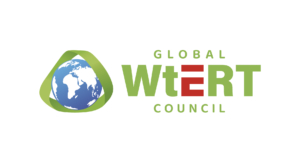We are pleased to announce the signing of a Memorandum of Understanding (MOU) between the Global WtERT Council (GWC), and the Research Institute for Solar Energy and New Energies (IRESEN), Morocco’s National Institute for Solar Energy and Renewable Energy. www.iresen.org
Founded in 2011 by the Moroccan Ministry of Energy, Mining and Environment, and key players of the country’s energy sector, the institute fund collaborative R&D projects involving universities and companies in the fields of renewable energy and energy efficiency. At the same time, IRESEN builds a network of applied research infrastructures throughout Morocco. Among them are research platforms for solar energy, for energy efficiency in buildings and smart grids as well as on water energy, biomass/ biogas, and Power-to-X.
The Director of IRESEN, Dr. Badr Ikken received a degree in mechanical engineering and industrial production & solar systems from the Berlin Institute of Technology and wrote his doctoral thesis on production technologies of hard materials. After eight years in the Department for Machining Technology of the Institute for Machine Tools and Factory Management (IWF) in Berlin, he served as a project manager at Fraunhofer IPK. From 2008, he was the CTO of multinational corporation Lunos-Raumluftsysteme before joining the Moroccan Agency for Solar Energy (MASEN) as Director of Integrated Development in 2010. In 2011, inspired by the model of Germany’s Fraunhofer Society, he co-founded IRESEN and has been its Director General since. He serves as well as the vice-president of the new climate economy commission of the Moroccan Confederation of Enterprises.
Morocco has signed an important partnership agreement with Germany on June 10, 2020. This agreement aims to develop the production of green hydrogen and to set up research and investment projects on the use of this ecological energy source.
Morocco is the first country to sign such an agreement with Germany and IRESEN will get involved by developing the transfer of knowledge and the strengthening of skills in Morocco.
We are enthusiastic to welcome IRESEN to WtERT family/ Columbia University and we are certain that this partnership will strengthen our collaboration to continue to promote excellence in research, education, and sustainable development by supporting the advancement of the methods for material and energy recovery from urban, industrial, and agricultural wastes for The Kingdom of Morocco and Africa.
Cities like Casablanca, with 3.5 million inhabitants, aim to meet at least 52 percent of their energy demand with renewables by 2030. Diverting more than 3000 metric tons per day MSW from landfilling to WTE facilities would help in meeting this goal as well as reducing greenhouse gas emissions.
GWC, WtERT-Canada, and Columbia’s Earth Engineering Center will collaborate with IRESEN and the Moroccan government on a pre-feasibility study on the economic and environmental aspects of a WTE plant to serve the city of Casablanca that represent 30% of total waste of the country to ensure Morocco’s ‘residual waste’ becomes strategic domestic energy and steam resource, rather than a problem to bury.
